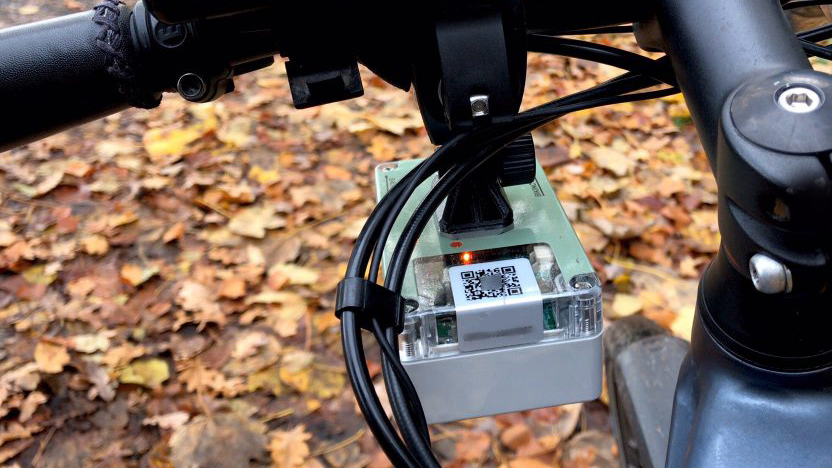Agree on Clean Air
Clean Air Agreement in The Netherlands emphasizes the importance of healthy air
Dozens of municipalities and provinces signed the Clean Air Agreement (SLA) on 13 January 2020. Civity wholeheartedly supports the initiative. Poor air quality is a growing problem in our living environment. Air pollution is a well-known trigger for lung diseases. One in five children who have asthma has contracted it due to air pollution.
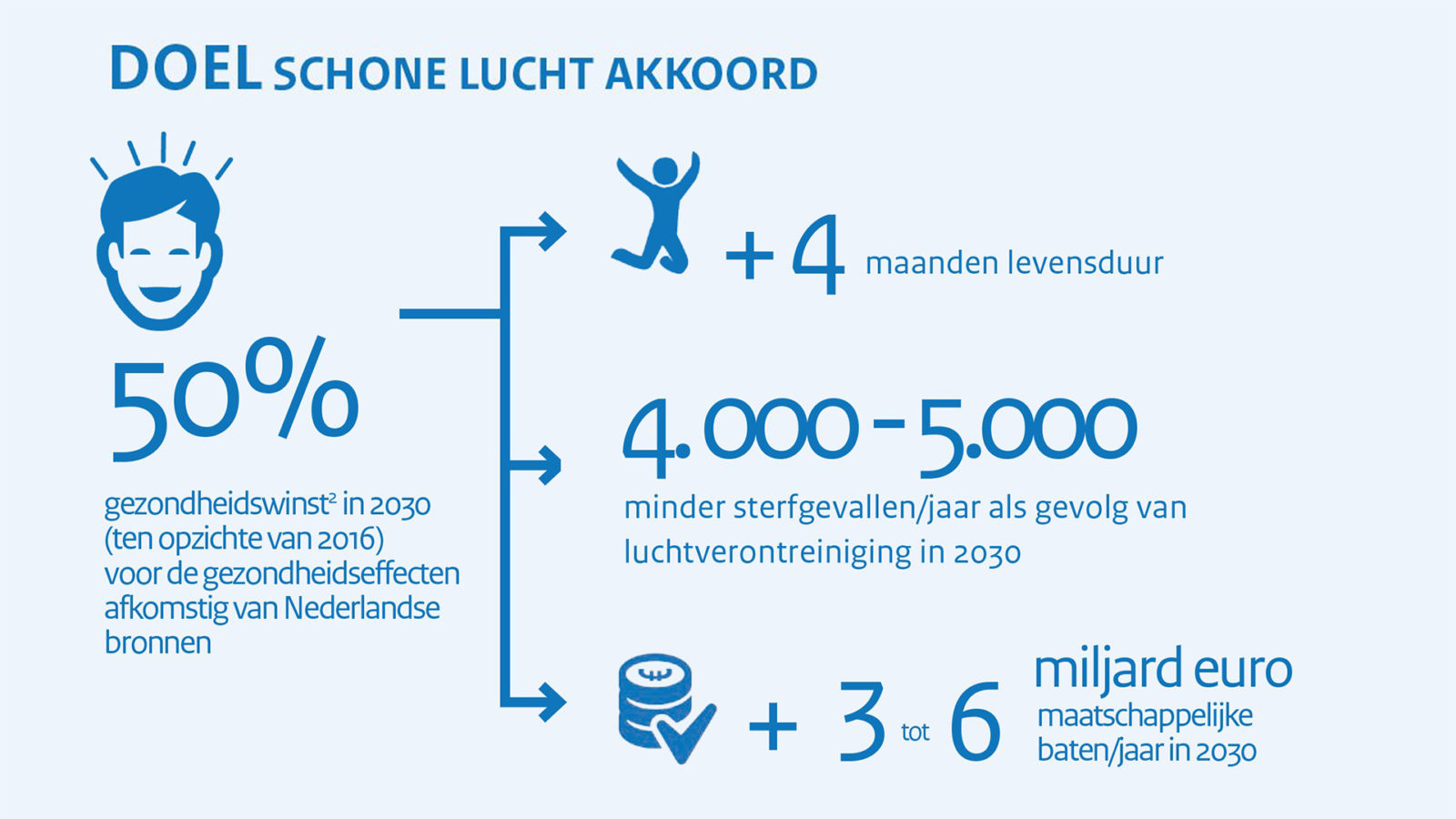
The causes of air pollution lie in aviation, (road) traffic, shipping, agriculture, wood-burning and industry. Civity developed an application in a private-public partnership that promotes clean air in traffic.
The Netherlands and bicycles
In the Netherlands people cycle about 15 billion kilometres per year. That’s more than 880 kilometres per person. In mid-2018, in order to make use of those cycling kilometres, we developed a smart application together with Sodaq, the RIVM and the Province of Utrecht: Sniffer Bike / Snuffelfiets.
In most large cities there are a few permanent measuring boxes, constantly at the same location. With the mobile Snuffelfietsensoren we obtain a more complete view on air quality.
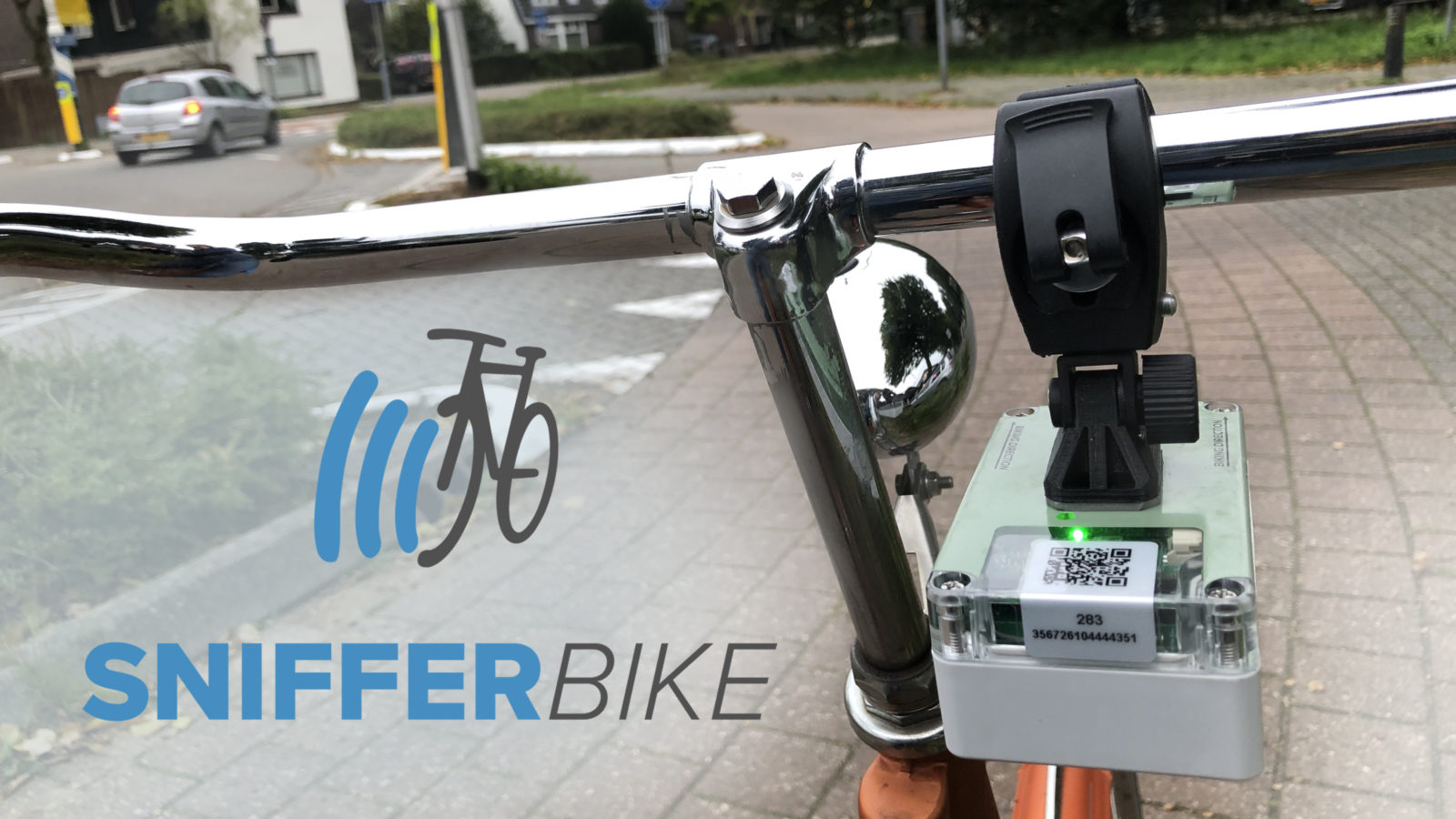
How it works
Mobile sensors are attached to the bicycles of hundreds of participating citizens. While cycling they collect a lot of (open) data on air quality in road traffic. Exactly where they are inhaled. At various times, on frequently used bicycle routes or on alternative greener routes.
Sniffer Bike stimulates the use of the bicycle, popular in the Netherlands, as a means of transport. It offers residents insight into the particulate matter values on their own routes. And it encourages them to choose greener routes and times.
From measurement to dashboard
The Sniffer Bike sensors measure various types of particulate matter and also GPS location, (average) speed, temperature, humidity, road condition and organic gases. A nitrogen sensor is being developed.
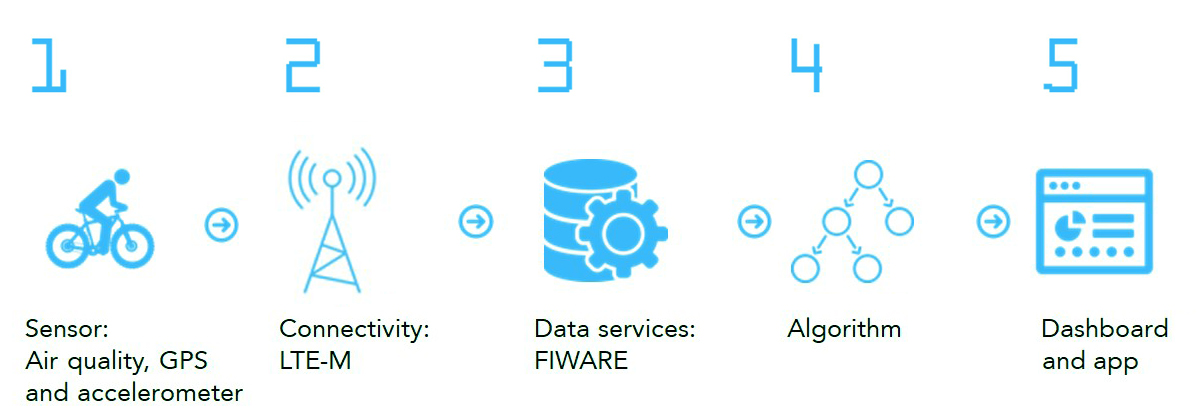
The real-time sensor data is sent via a wireless connection (LTE-M) to Civity’s data platform. Civity ensures secure storage and access to the data. We offer each participant their own real-time page with personal cycling routes and measured values. In addition, we show the anonymized open data as independent measurements on a map.
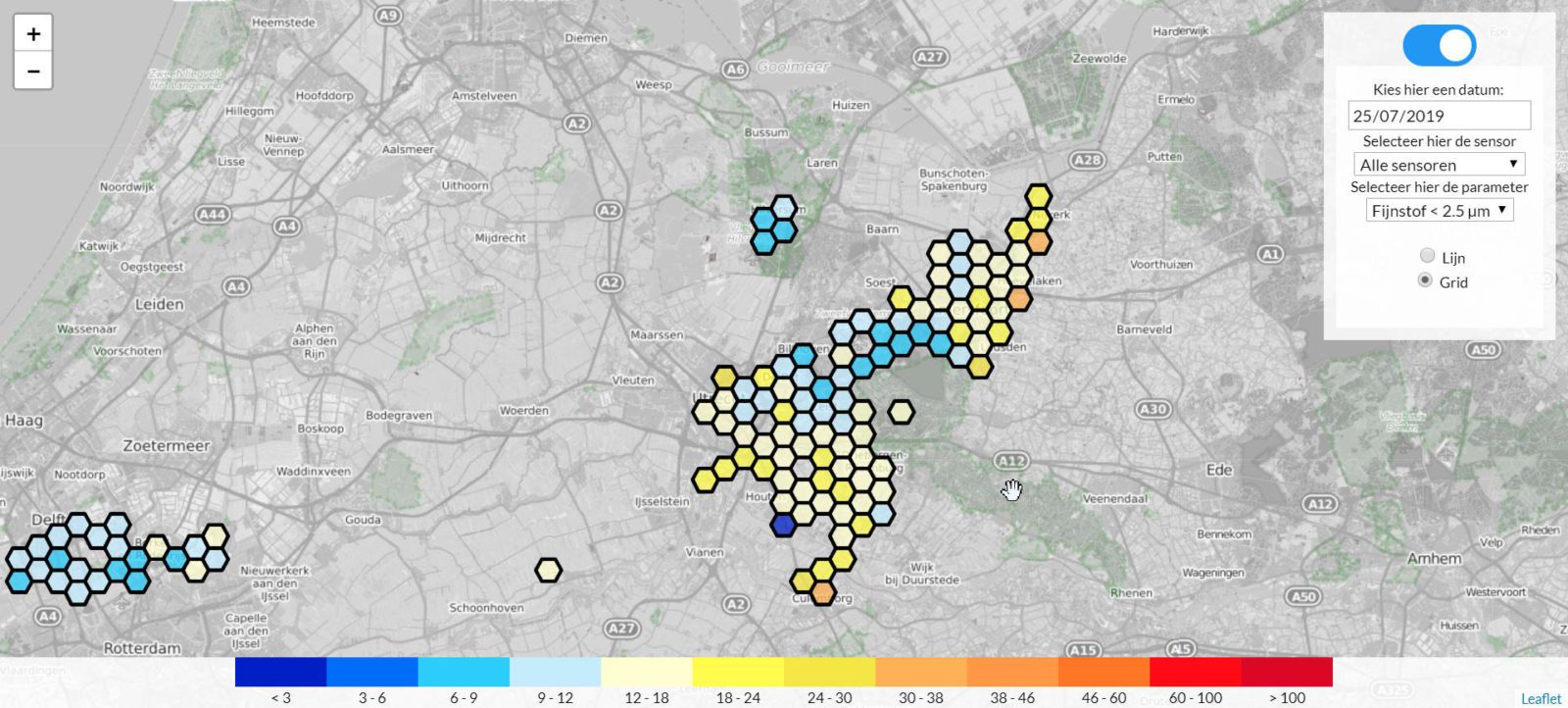
Data supporting policies
The collected data supports government organisations and urban planners in making informed decisions based on new insights.
The Sniffer Bike data are validated by the RIVM in relation to the fixed measuring stations in the Netherlands so that the data complement each other.
The project contributes to awareness about air quality: residents see the effect of their choices and can adjust their behavior by choosing healthier alternative routes, times and means of transport without harmful emissions.
With the data, governments can benefit from future decisions in the field of mobility and sustainability. For example, in the infrastructure of the bicycle road network. And by reducing air pollution in places with high values, for example through stricter standards for cars, trucks and mopeds. The measurements also help to map heat islands in summer.
Advantages of open source, open data, open standards
On our real-time open data platform CIP IoT we use FIWARE building blocks. Together with Future City Foundation Civity is founder of the Dutch FIWARE iHub. The FIWARE Context Broker (with NGSI v2 API connection) is able to consolidate data from different IoT devices – in this case the Sniffer Bike sensors – and place the data in context. From data to meaningful information.

And thanks to the open standards of our data platform, the data can easily be used by other parties without vendor lock-in.

The Province of Utrecht supports open data and open source solutions. The data and solutions must always belong to the public. This is an important factor in solving social issues by and for the public. The open standards of FIWARE Context Broker make this possible.
How data contributes to a liveable and safe city
We see that the involvement in the Sniffer Bike project is great. It increases the awareness to actively work on a cleaner living environment. Both among policymakers, citizens and businesses. Together we like to work on a healthy and safe habitat.

